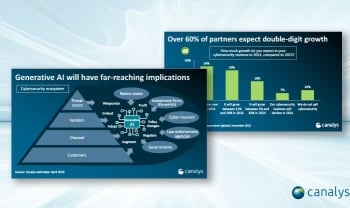Boost your business with cybersecurity risk assessments

The factors that pose risks to companies are constantly changing. Clinging to a single defense strategy can be counterproductive, as this strategy can quickly become outdated and ineffective. As a managed service provider (MSP), you may have found that your customers are unwilling to consider new cybersecurity tools unless there is a problem, or they aren’t satisfied with their existing solution. But the bottom line is that you need to take a proactive stand and continuously improve their security posture to fend off potential incidents, regardless of whether customers have raised any issues.
Endpoint cybersecurity risk assessments provide a snapshot of internal and external factors that put your customers' devices at risk. Given that risks are volatile, it is advisable to provide risk analysis to stay on top of threats as they emerge or evolve.
How can endpoint risk assessments help you increase your earnings?
Contrary to what some may think, cybersecurity is not a problem to be solved, but a process that requires continuous monitoring and management. Analyzing the "health" status of your customers' security is a key part of this process. It’s an opportunity for you to offer a new service that helps grow your business and achieve the following:
Attract new customers:
A risk assessment flags all the security risks at potential customers' endpoints, which demonstrates to them that you can solve their specific security problems. You will stand out from your rivals by providing this differentiated offering, as it will help strengthen customer relations and build confidence in your products and services, thus increasing the chances of upsell and cross-sell and bringing in more revenue.
Keep your existing clients loyal:
It is important to maintain customer loyalty and satisfaction. Offering a risk assessment as part of your services can help you achieve this, as your customers will appreciate your proactivity and feel more secure. Moreover, the risk of an attack depends on effective security solutions and good management. But not all solutions offer the same degree of protection and not all are managed effectively. In fact, many successful attacks are due to human error, such as misconfiguration or an unmanaged alert. A risk assessment of your customers' endpoints will allow you to identify the factors that pose a danger, including within their current security solution, and flag which risks require immediate attention or action.
Maintain a good reputation:
Customers generally do not consider new cybersecurity tools until they suffer an attack. After seeing the financial cost involved, they change their minds. However, when an attack occurs many companies that outsource their cybersecurity blame, at least in part, their service provider. This can damage your reputation and business. One way to avoid this is to perform endpoint security health checks as this enables you to provide customers with all the information, they need to take proactive measures and protect their data.
Expand your service offering:
An endpoint risk assessment can serve as a starting point to initiate a regulatory and compliance conversation with your customers. Based on the information gathered, you can recommend which steps they can take to strengthen their endpoint security.
Endpoint risk assessments are a useful tool for demonstrating your value as an MSP to potential and existing customers. By providing a sample risk assessment, you show them simply and effectively that you understand the risks in their business environment and know how to protect them accordingly. Quantifying risks also helps you demonstrate your professionalism and create customized proposals that address customers’ specific needs. For this purpose, WatchGuard provides you with a free tool that will help you understand which steps to take, identifying your customers' active and potential risks before they become major problems, while boosting your earnings and growing your business.
If you want to find out more about risk assessments and the key role they play in enterprise cybersecurity, visit the following post on our blog:


